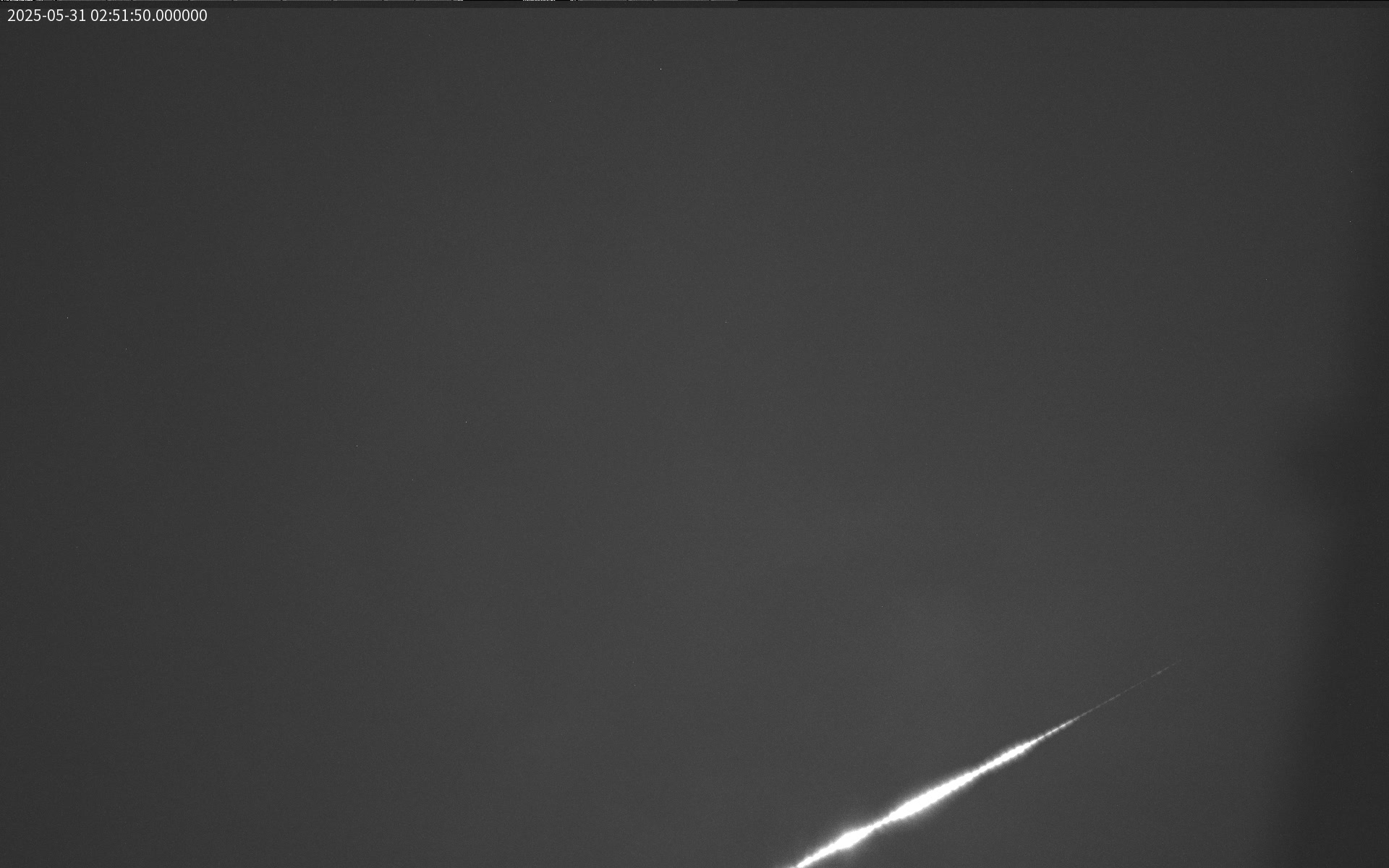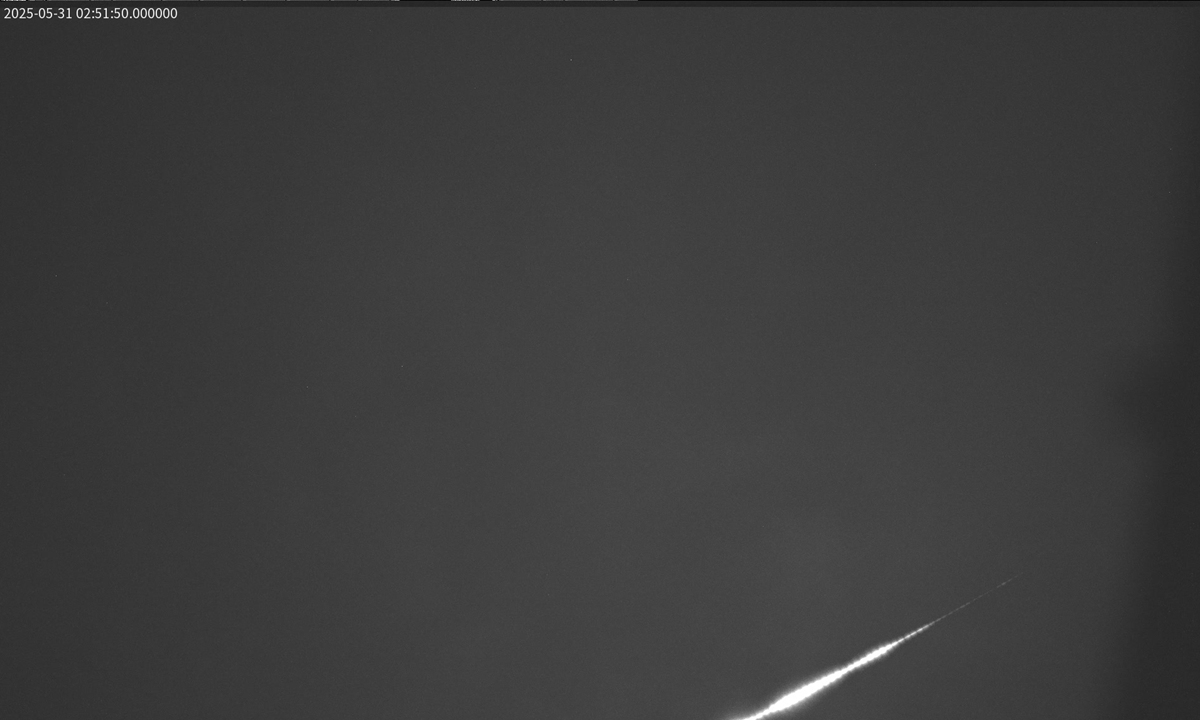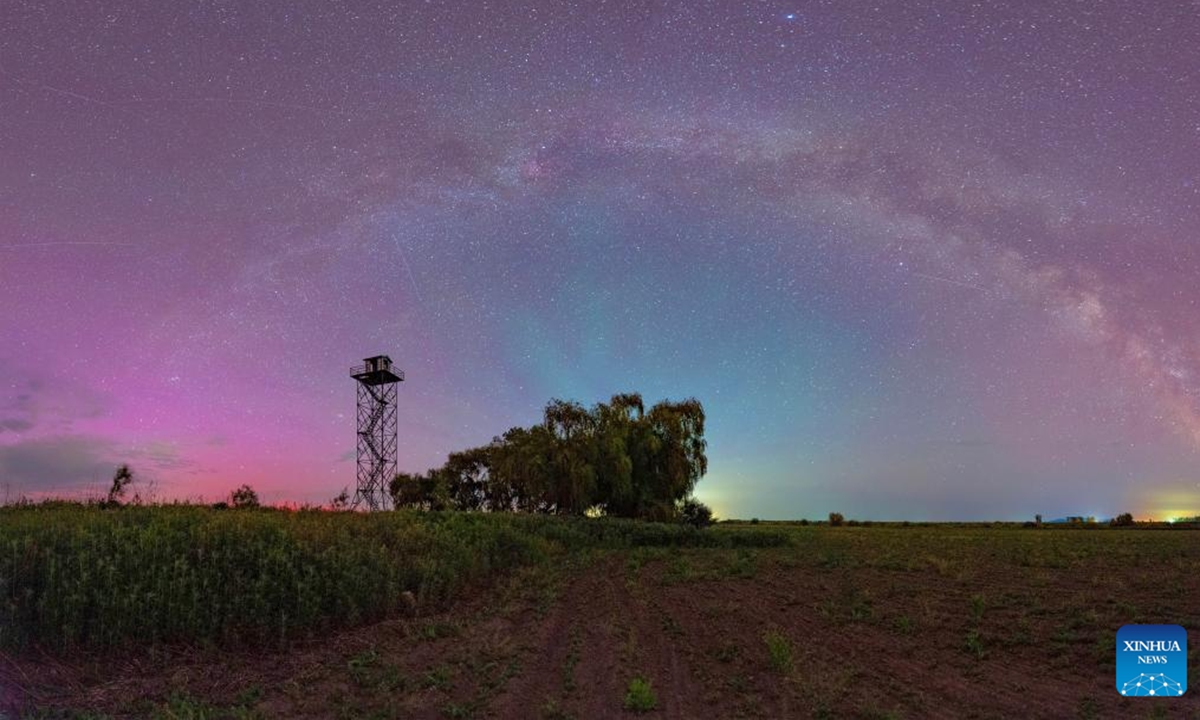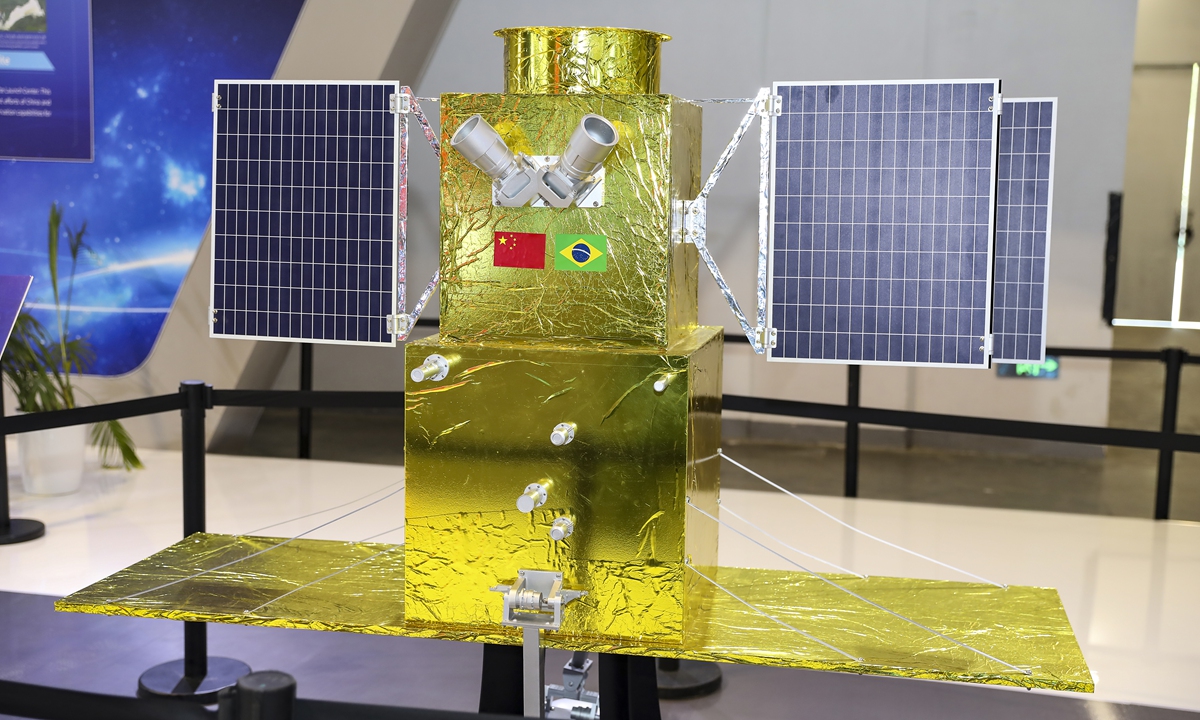Beijing residents observe night sky lit by bright light; expert says it's bolide phenomenon: media

Photo:Beijing Daily
Some residents in several Beijing districts were jolted awake early Saturday by a thunderous explosion around 3 am, with some witnessing a dramatic burst of light illuminating the night sky, Beijing Daily reported on Saturday.
Many netizens also posted messages on social media platforms recording the scene and sound of the event.
The rare event triggered widespread online speculation. An expert told Beijing Daily that it is a typical bolide phenomenon.
The Xinglong Meteor Observation Station, part of the University of Chinese Academy of Sciences' (UCAS) multi-station video monitoring network, successfully captured footage of the bright "fireball" blazing across the Beijing sky.
"Our monitoring stations recorded the event. Combined with some videos posted by netizens, we observed the typical green 'fireworks' like phenomenon. It moved very fast and exploded violently. What streaked across the Beijing night sky was a bolide," said Li Zhenye, a postdoctoral researcher at School of Astronomy and Space Science under UCAS, which recorded the precise event time at 2:51 am on Saturday, according to Beijing Daily.
Li noted that the "fireball" event in Beijing is similar to a phenomenon observed in Maoming, South China's Guangdong Province just two days earlier on Wednesday, both accompanied by intense brightness and a loud noise.
A staff member from Maoming's emergency management bureau told the Global Times on Thursday that, based on assessments by relevant departments, the fireball was most likely a bolide.
Meteor observation stations have been established at the Xinglong, Wuqing, Changshaoying, and the Baihua Mountain, which enable multi-angle observations, covering a detection area of approximately 200,000 square kilometers. They not only record meteor images but also automatically collect and calculate data from various stations, allowing for the determination of meteor flight trajectories.
These trajectory calculations become crucial if any fragments survive the atmospheric entry. Researchers explained that the data could help scientists accurately locate potential meteorites.
Recovered meteorites provide unique scientific value, enabling laboratory analyses impossible through observation alone - such as detailed rock composition, isotopic studies, and even searches for potential signs of ancient life, the report said.
Furthermore, scientists will take these celestial fragments to trace their origins back through space, studying the motions of comets and asteroids to gain deeper insights into the formation and evolution of the solar system, according to the report.
Global Times



